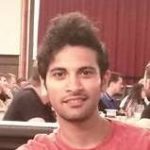Facebook knew users were worried about third-party apps long before Cambridge Analytica scandal

Facebook appears to have known just how worried users were about third-party apps accessing their personal data, well before the now infamous quiz at the heart of the Cambridge Analytica scandal appeared on the site.
The data of 50 million Facebook users was reportedly harvested by ‘thisisyourdigitallife’, a quiz app created by University of Cambridge academic Aleksandr Kogan, and then allegedly sold to and misused by Cambridge Analytica. The app gained access to the data through Facebook Login, a feature that lets you sign into third-party apps with your Facebook account.
Mark Zuckerberg and co, it turns out, knew that users felt uncomfortable sharing their Facebook data with apps in this manner, and even built a tool that would let them sign in to apps anonymously. Unfortunately, it never rolled out.
Related: How to stop apps from accessing your Facebook data
Footage resurfaced by Mashable shows Facebook unveiling a feature called Anonymous Login at the company’s f8 Developer Conference on April 30, 2014. It was designed to allow you to sign in to third-party apps using your Facebook account, without sharing any of your data with the apps themselves.
Since the thisisyourdigitallife app also emerged in 2014, Facebook’s Anonymous Login announcement simply came too late to prevent the chaos that was to follow. However, Zuckerberg was aware of people’s concerns well before 2014, as he revealed at f8 2014:
“Over the years, one of the things we’ve heard over and over again is that people want more control over how they share their information, especially with apps. And they want more say and control over how apps use their data,” he said during the keynote.
“We take this really seriously, because if people don’t have the tools they need to feel comfortable using your apps, then that’s bad for them and it’s bad for you.”
Announcing Anonymous Login, he continued: “We need to do everything we can to put people first and give people the tools they need to be able to sign in and trust your apps. We know that some people are scared of pressing [the ‘Login with Facebook’ button]. A lot of you have maybe even had personal experiences where you’ve felt this.
“It’s some of the most common feedback that we get on our platform. And the reality is, if you’re using an app that you don’t completely trust, or that you’re worried might spam your friends, then you’re not going to want to give it a lot of permissions.”
Unfortunately, as we all now know, this wasn’t the case. Even if people did have privacy concerns, hundreds of thousands of them still granted thisisyourdigitallife access to their Facebook data.
“The idea [with Anonymous Login] is that even if you don’t want an app to know who you are, yet you still want a streamlined experience for signing in that removed the hassle of filling out all these different fields,” said Zuckerberg in 2014. “This is going to let you try apps without fear.”
Anonymous Login never actually made it out of testing, and was later ditched altogether.
Do you remember the announcement of Anonymous Login? Share your thoughts @TrustedReviews.


